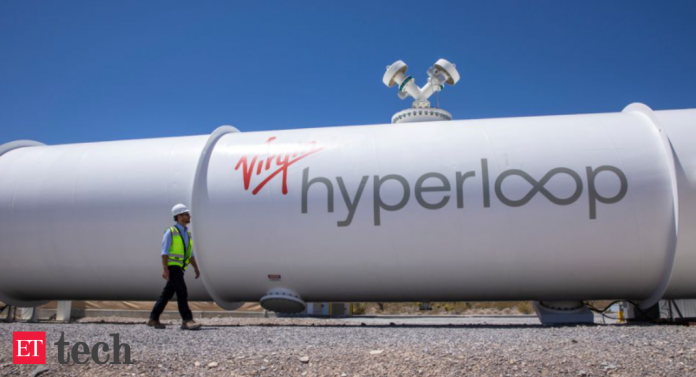Saraswat heads a committee within the government think tank to explore the technological and commercial viability of the Virgin Hyperloop in India.
“Hyperloop is a high-speed train, running in vacuum tubes. We (expert committee members) have found that there are two ways of doing it,” he told PTI in an interview. “One is, allowing foreign companies to show demonstrations. Another way is to do—in parallel—serious R&D in this particular area, and our studies show that we have a capacity to do R&D and come up with our own designs.”
“But since it is going to take time, in parallel, if the foreign companies are coming who want to set up a demonstration line in say Maharashtra or Karnataka, we should permit them,” he said. India should also constitute a regulatory mechanism because safety is a major issue in hyperloop technology, he added.
Saraswat, a former chief of the Defence Research and Development Organisation (DRDO), said that the expert committee has not taken any final decision.
Hyperloop is a technology proposed by inventor and entrepreneur Elon Musk, who leads three companies — Tesla Inc. for making electric cars, SpaceX to commercialise space travel and The Boring Co. that builds tunnels for hyper commuting.
The Virgin Hyperloop test run was conducted on Nov. 9, 2020, on a 500-metre track in Las Vegas in the US with a pod, travelling with passengers inside an enclosed tube at more than 100 miles per hour (161 km/h). The Richard Branson-promoted company is among a handful of companies that are currently trying to build such a system for passenger travel.
In India, Maharashtra has deemed hyperloop a public infrastructure exercise and approved the Virgin Hyperloop-DP World consortium as the original project proponent for the Mumbai Pune hyperloop project.
When asked about the global chip shortage that’s disrupting production cycles and supply chains worldwide, Saraswat said the Indian government is seriously planning to set up indigenous semiconductor foundries in the country.
“As far as semiconductors are concerned, the government is very seriously thinking of setting up a very strong ecosystem for self-reliance in the area of semiconductors,” he said. “We’ve noticed during the pandemic there has been serious disruption of the semiconductor supply chain, which has affected our automobile industry and other electronics industry and so on.”

























